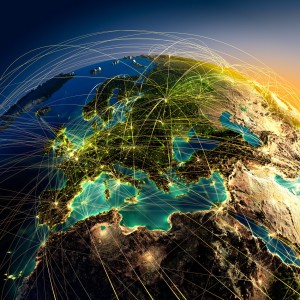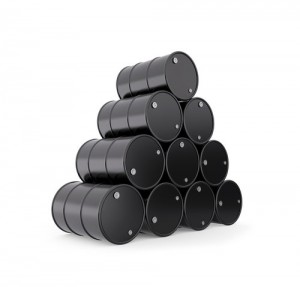 Though the world’s energy needs have been steadily rising, there are many resources still left available. In fact, the wealth of resources is one of the leading factors in the recent falling prices, as many countries have found themselves producing large amounts of oil and selling them for exceptionally low prices. Without any production cuts or price stabilization, these countries may remain economically vulnerable.
Though the world’s energy needs have been steadily rising, there are many resources still left available. In fact, the wealth of resources is one of the leading factors in the recent falling prices, as many countries have found themselves producing large amounts of oil and selling them for exceptionally low prices. Without any production cuts or price stabilization, these countries may remain economically vulnerable.
- Venezuela (297.7 billion). With an economy that depended on oil for 11% of its GDP, Venezuela has been one of the countries hardest hit by plummeting oil prices. Today, Venezuela has been attempting to establish links with non-OPEC countries and to reduce its dependency on oil revenues.
- Saudi Arabia (268.4 billion). Saudi Arabia has historically been one of the largest producers of oil in the world and has, therefore, controlled much of the global market. Saudi Arabia is presently competing with Russia in regards to active oil supply; the country is not interested in production cuts, but has shown interest in cooperating with other oil producing companies.
- Canada (173.2 billion). Many are not aware that Canada contains huge reserves of shale oil. In fact, Canada is presently a major exporter, sending its oil reserves to both the United States and Europe; presently it is the largest foreign supplier of American oil. Significant increases in Canadian production have been seen in recent years due to hydraulic fracturing and unconventional drilling.
- Iran (157.3 billion barrels). Due to its sanctions, Iran’s oil and gas industry is in a state of flux that may continue for some time. Oil production in Iran has been able to continue small amounts of exports between the country and India, but otherwise is required to keep itself below a certain quota in production and economic influence.
- Iraq (140.3 billion barrels). A country with significant political and economic turmoil, Iraq’s revenue dropped by 30% during the oil market crash of 2014. Nevertheless, Iraq is still one of the biggest producers of the OPEC, and has continued to produce oil in record amounts along with the rest of the organization.
- Kuwait (104 billion barrels). Kuwait has plans to increase its oil production to a total of 4 billion barrels a day by 2020. Kuwait was able to capitalize on the 2012 sanctions on Iran by trading oil to the Asian energy markets.
- United Arab Emirates (97.8 billion barrels). The UAE is one of the leading members of OPEC, and has been doing much to control pricing on a global scale. UAE’s economy is primarily based on global energy exporting and the UAE has vastly increased its supply following the 2014 crash.
- Russia (80 billion barrels). Russia is currently producing 10 million barrels per day of oil, which is a post-Soviet record high. This has initiated an arms race of sorts with Saudi Arabia, as both of them are competing to flood the market, and neither have implemented any of the much needed production cuts to stabilize the market.
- Libya (48.47 billion barrels). Libya’s economy is primarily energy-based, with crude oil production slowly rising again following the oil industry crash. Today, crude oil production is occurring at 415,000 barrels per day, which is down over 50% year-over-year. Nevertheless, the economy has been slowly stabilizing.
- Nigeria (37.14 billion barrels). Nigeria’s economy has been suffering ever since the fall of oil and gas prices throughout 2014. Nevertheless, oil still makes a significant portion of the country’s economy.

The oil producing nations may need to begin working together (or at least, not against each other) to stabilize the market. OPEC has proposed oil production cuts of up to 5% in order to help the falling per barrel prices, but Saudi Arabia has stated a lack of interest in this strategy. Nevertheless, many foreign nations are experiencing significant economic difficulty due to their extensive reliance upon their oil reserves. For more information about oil and natural gas, contact Tiger General.